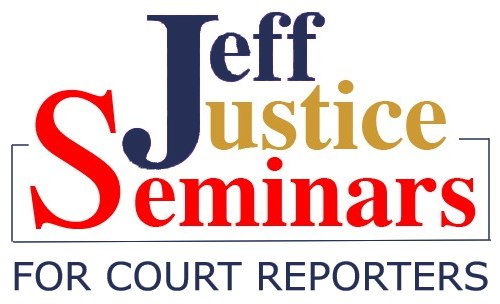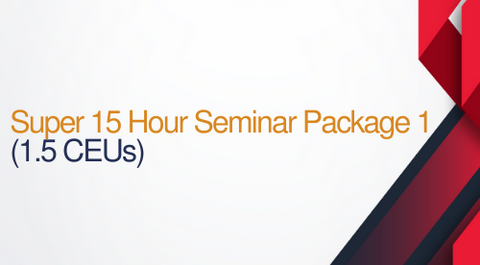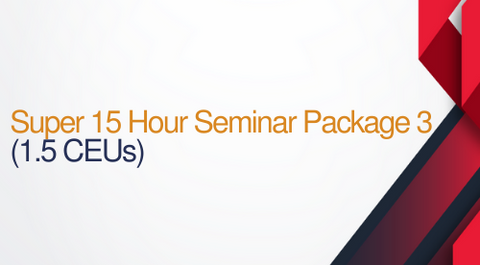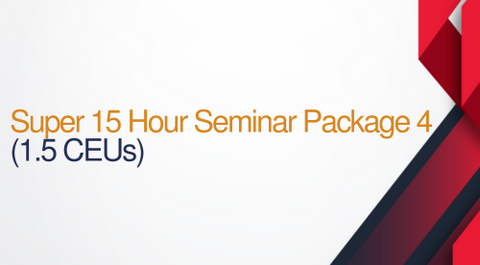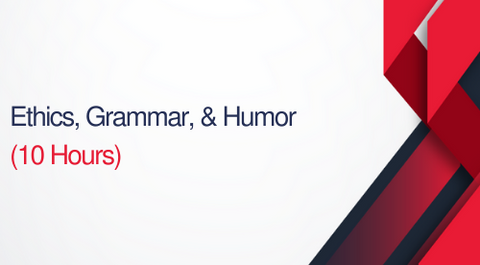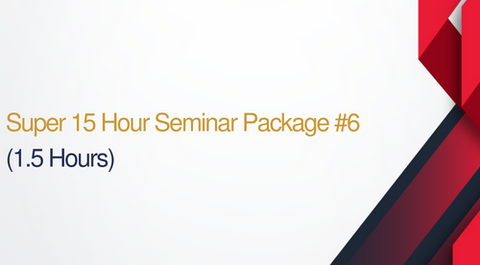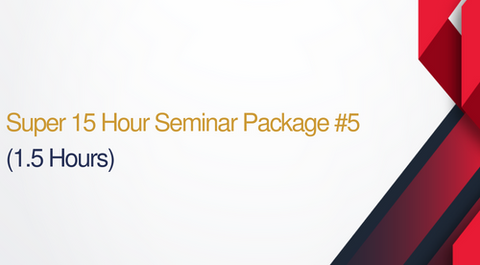SESSION 1
Title: “Shoptalk”
Ethics, Grammar, and Punctuation for Court Reporters: 5 hours
Presenter: Sue McDuffie, CSR
This program covers how to handle various situations that arise, such as:
- When to go on and off the record in depositions and court proceedings
- How to handle interrupting proceedings
- What to do when you can’t hear or understand
- Responding to clients’ challenges to transcripts
- Appropriate procedures when doing research
- Interacting with pro se parties and nonparties
- Billing clients and collecting money owed properly
- Punctuating difficult and poorly said sentences and passages
(including an in-depth review of all punctuation marks)
- Handling verbatim issues (stutters, use of sic, accents, and so forth)
- Using quotation marks with quoted or possible quoted passages
- Depicting audiotaped and videotaped materials in transcripts
- Dealing with issues related to the use of translators
- Using parentheticals correctly and effectively
- Review of homonyms
SESSION 2
Title: “Peak Performance & Writing Shortcuts & Super Briefs”
How To Do Your Best Under Pressure And Tips On Writing Shortcuts and Super Briefs: 4 hours
Presenter: Anita Paul Johnston, CSR-CCR-CRR-CRI-CPE-CCP-CBC-CSP
COURSE OBJECTIVE:
To teach you how to master your energy, emotions, and thoughts during high-pressure situations, such as a contentious hearing or trial, certification testing, applying for a position with an agency or court, an uncomfortable confrontation or challenge with an attorney or judge, agency owner, etc.
Specific Seminar topics:
Identifying the power of energy and emotions, including
- High positive energy
- Low positive energy
- Low negative energy
- High negative energy
- The importance of diet, nutrition
- Exercise
- Affirmations
- Visualizations
- Creative thought control
Learning Outcomes:
You will learn proven successful techniques applied by Olympic champions, CEOs, and other highly successful people in stressful situations. These techniques will follow in all aspects of their life by creating excellent peak performance when it counts.
For the second part, Writing Shortcuts & Super Briefs
Learning Objectives:
Mastering instant recall for clarifying, conflicts, applying prefixes and suffixes for word- building, creating easy briefs on the fly, and learning techniques to master easier ways to write long words, and ideas to serve captioners and CART providers.
Specific Topics:
- Conflict clarification
- Writing clarification for prefixes and suffixes
- Shortcuts for most frequently used alphabets
- Ideas for writing numbers easier, including single strokes for years
- Techniques to create briefs on the fly
Learning Outcomes:
Court reporters will learn easy techniques to clarify conflicts, distinctive ways to write prefixes and suffixes (such as re- and -ry and final –er and –or ), strategies to create most common alphabets, numbers, and “Smart Strokes.” This leads to more confidence in doing realtime for others.
SESSION 3
Title: “Easy Solutions For Difficult People”
Skills for dealing with difficult people: 2 hours
Presenter: Anita Paul Johnston, CSR-CCR-CRR-CRI-CPE-CCP-CBC-CSP
COURSE OBJECTIVE: To teach reporters how often and what techniques to use to interrupt so that professionalism and clarity prevail.
Specific workshop topics:
- Fast talkers
• Mumblers, can’t hear
• People speaking all at once
• Difficult accents to understand
Court reporters were not taught how often to interrupt, a clear and concise technique to politely yet clearly interrupt, and what is expected versus what is intolerable.
This seminar covers strategies to care for the reporter and attorneys/judges so that professionalism and clarity prevail.
SESSION 4
Title: “Anita’s Best Of The Best”
Anita’s best tips: 2 hours
Presenter: Anita Paul Johnston, CSR-CCR-CRR-CRI-CPE-CCP-CBC-CSP
Learning Objectives:
To make the reporters better writers by learning Anita’s most effective writing strategies to solve problems writing.
Specific Topics:
- Conflicts
- Prefixes and Suffixes
- Numbers
- Alphabets
- “Smart Strokes” and instant shortcuts also included is dictionary cleanup and maintenance. All court reporters can use time-saving writing tips to reduce editing time, even if they are not interested in Realtime. Of course, clean writing is essential for those who want to embrace Realtime, broadcast captioning, or CART. Quick easy writing tips will aid in making the court reporter’s life easier and slash editing time 50 to 75%. They will learn well organized, methodical systems to create cleaner transcripts
SESSION 5
Title: Constructing Ethics
Handling situations ethically: 2 hours
Presenter: Pam Coder
Course Objective:
Working with reporters to identify tricky ethical situations in various settings we encounter every day in the workplace and how to effectively handle said situations immediately, effectively, professionally, humorously, and ethically for the benefit of the reporter as well as the clients.
Special format: Group participation and discussion, individual and group.
Specific topics and design:
Ethical situations will be given along with the role of the various people involved in those situations, i.e., reporter, videographer, attorneys, interpreter, corporate reps, et al. We will discuss our role as reporters with each of these individuals in the freelance, official, CART, and captioning settings. Attendees will be placed in groups and given assignments for each group along with a plethora of situations that occur to reporters on a daily basis. Each group will act out those different scenarios. Then the group of attendees as a whole will discuss how each group handled the situations they were given and what he/she would have done differently if anything. We will discuss HIPAA, last-minute requests, realtime, rough drafts, working with interpreters/videographers, et cetera.
